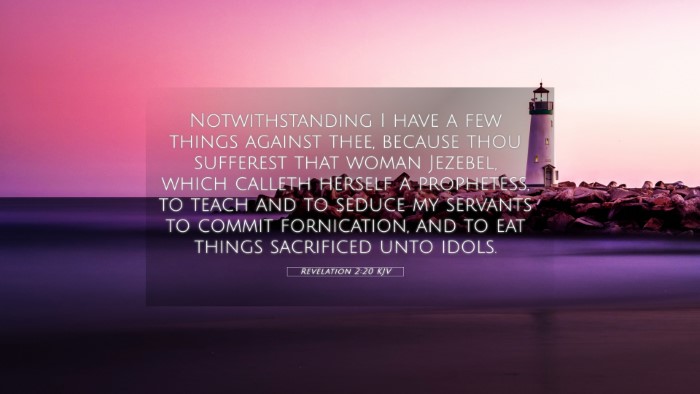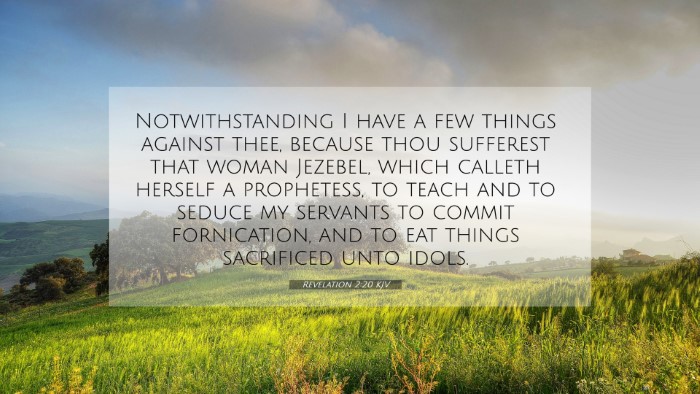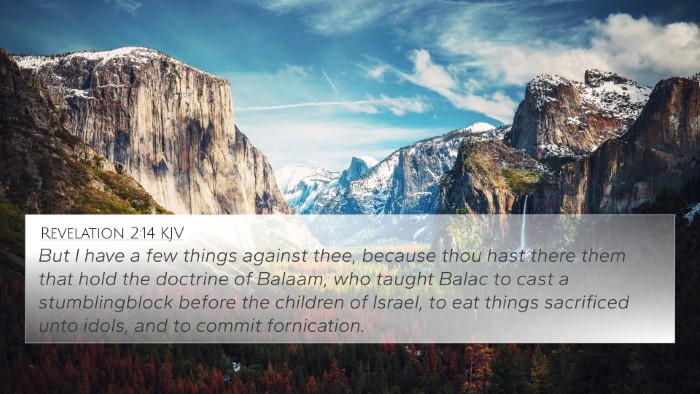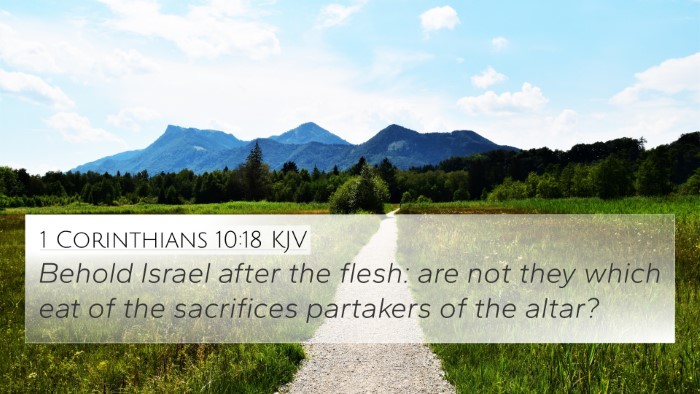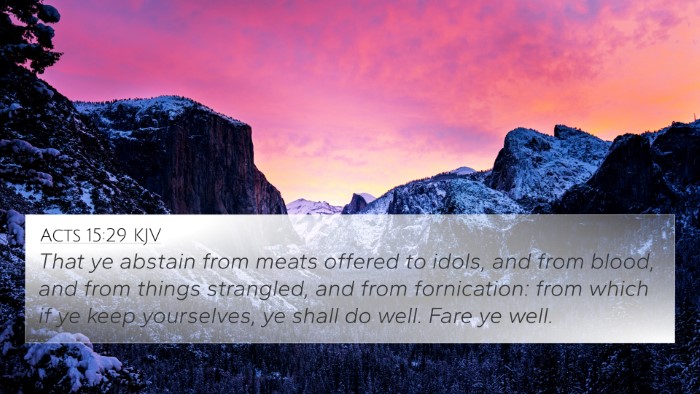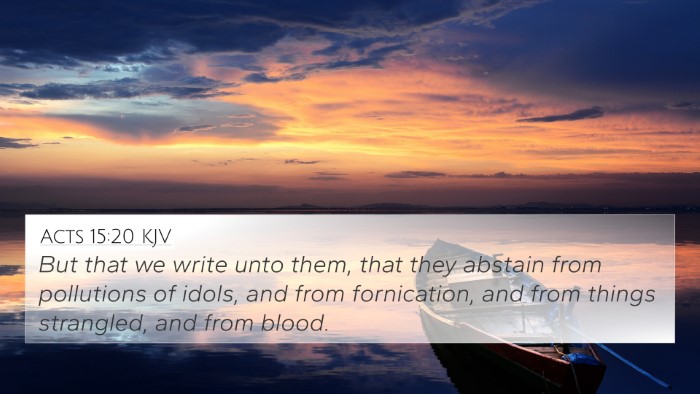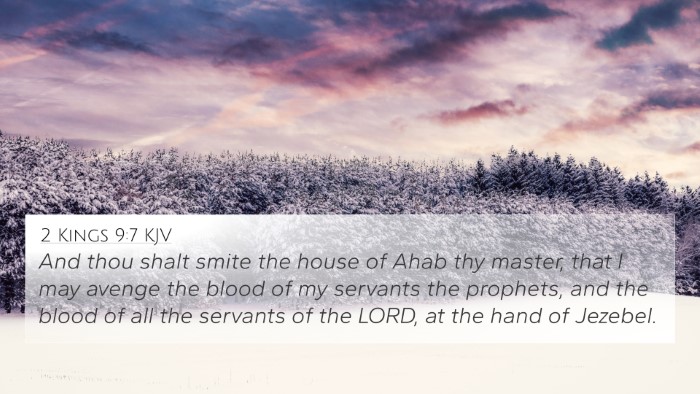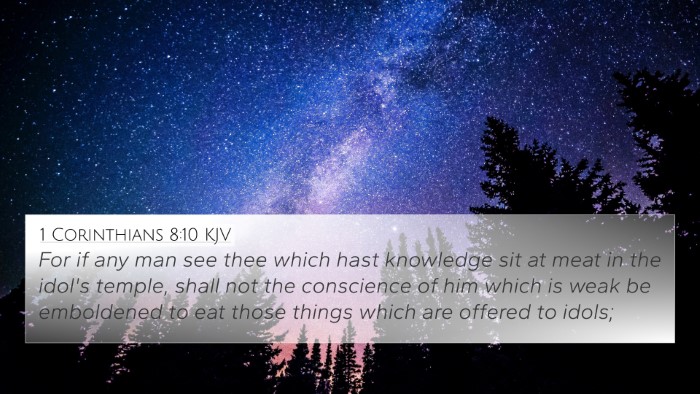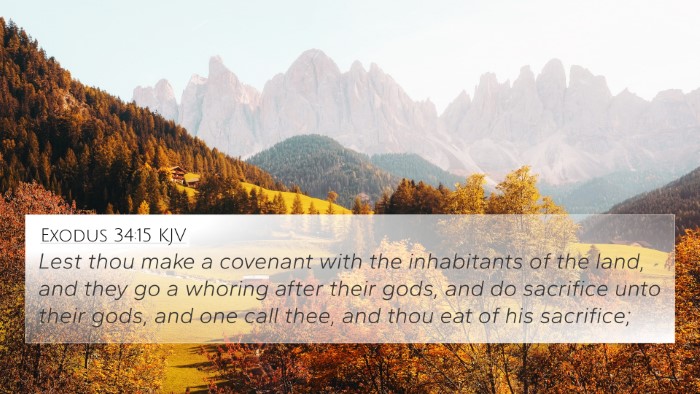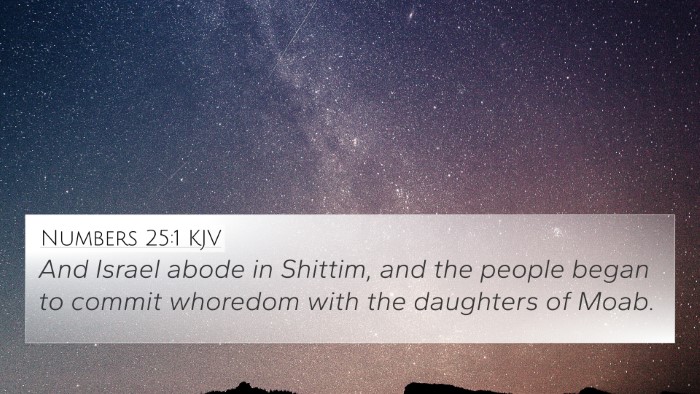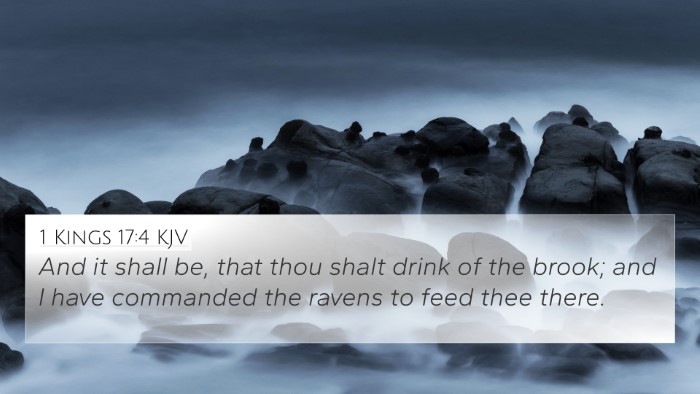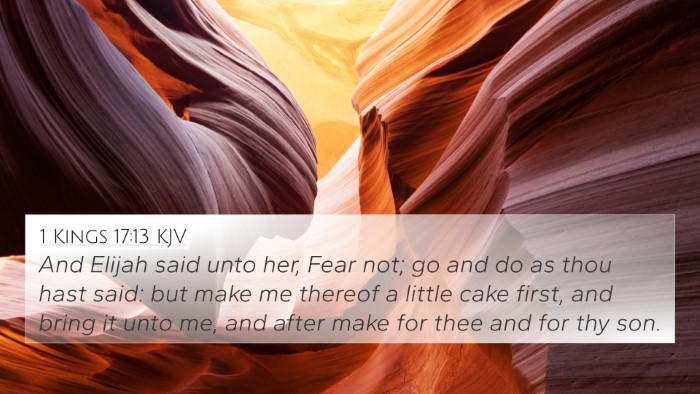Understanding Revelation 2:20
Verse Text: "Notwithstanding I have a few things against thee, because thou sufferest that woman Jezebel, which calleth herself a prophetess, to teach and to seduce my servants to commit fornication, and to eat things sacrificed unto idols." - Revelation 2:20
This verse addresses the church in Thyatira, where serious issues of false teaching and moral compromise were occurring, particularly through the influence of a figure symbolically referred to as Jezebel. Let's explore its meaning through insights gathered from public domain commentaries.
Meaning and Commentary
Matthew Henry: Henry emphasizes the warning directed at the church regarding false teachings. He notes that this "Jezebel" represents those who lead believers into spiritual error and immorality. The church allowed her influence, which led to the corruption of their ethical standards and faith. He warns that the consequences of tolerating such influence can lead to severe spiritual repercussions.
Albert Barnes: Barnes interprets the chastisement against the church for not addressing the influence of this so-called prophetess. He sees the reference to Jezebel as indicative of idolatry and immorality associated with her name from the Old Testament. Barnes suggests that the believers were being seduced into practices that compromised their loyalty to Christ and the pure teachings of the Gospel.
Adam Clarke: Clarke provides a historical backdrop, asserting that the corrupt teachings of Jezebel symbolize a broader movement within the early church towards Gnostic beliefs and pagan practices. He argues that this seduction was not merely a physical temptation but a theological one, encouraging a departure from doctrinal purity and righteous living.
Key Themes
- False Prophets: The issue of false teachers infiltrating the church and leading believers astray.
- Complacency: The danger of remaining passive in the face of moral and ethical corruption.
- Judgment: A warning of impending judgment for those who do not repent from following such teachings.
- Idolatry: The mention of eating things sacrificed to idols, signifying the blending of pagan practices into Christian worship.
Bible Verse Cross-References
To provide a deeper understanding of Revelation 2:20, here are some relevant Bible cross-references that illuminate its themes:
- 1 Kings 16:31-33 - The original Jezebel's influence and actions.
- 2 Peter 2:1-3 - Warning against false teachers and their destructive ways.
- Revelation 2:14 - Previous mention of similar teachings affecting the church.
- Jeremiah 14:14 - False prophets who speak presumptuously in God's name.
- Matthew 24:11 - Increasing false prophets in the last days.
- Acts 15:29 - The early church's directives regarding idolatry and fornication.
- 1 Corinthians 10:20-21 - Warning against participating in practices associated with idols.
- 1 Timothy 4:1 - The Spirit's warning of apostasy in the latter times.
- Hebrews 13:4 - God's view on marriage and immorality.
- 2 John 1:10-11 - Instruction on not receiving false teachers into fellowship.
Conclusion
Revelation 2:20 serves as a significant admonition to the church regarding the serious implications of allowing false teachings to prevail. By examining this verse through the insights of respected commentaries, we uncover a strong warning against complacency and moral compromise in our faith. The process of cross-referencing Biblical texts deepens our understanding of its meanings and reveals the consistent themes throughout Scripture concerning fidelity to the Gospel and the dangers of false influences within the community of believers.
This exploration uses critical tools for Bible cross-referencing and helps provide a cross-reference Bible study framework to enhance our understanding of critical themes within the Christian faith.

